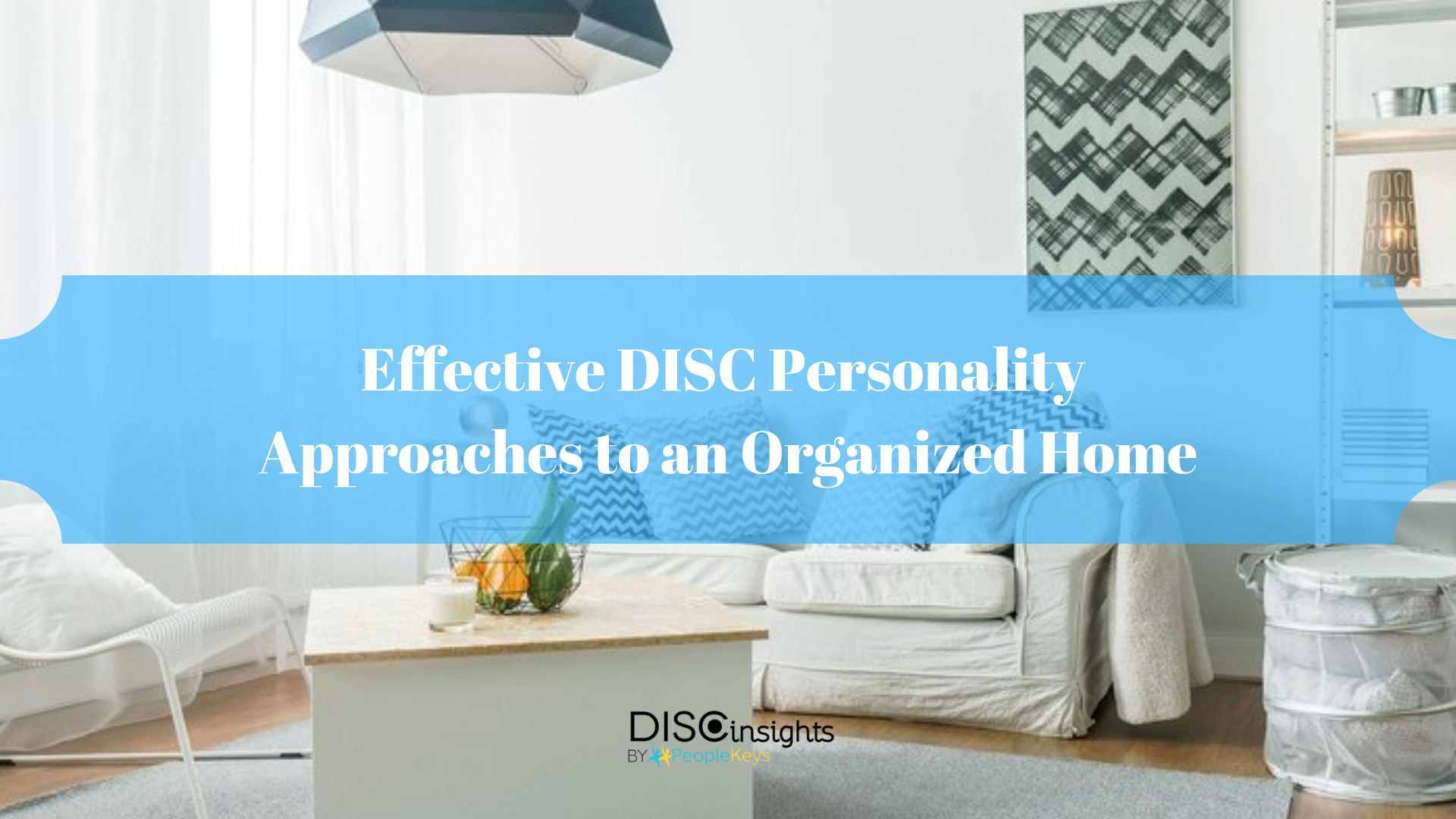- SHOP BY PRODUCT
- DISC TRAINING & CERTIFICATION TOOLS
- DISC RESOURCES
- BLOG
- SHOP BY PRODUCT
- DISC TRAINING & CERTIFICATION TOOLS
- DISC RESOURCES
- BLOG
- ALL ITEMS



While some people may have a natural tendency to become and stay organized, others struggle to maintain a balance. The good news is that understanding DISC has universal application and is not limited only to the business realm, but can help you in your personal life too. Knowing your personality style can help you accept the approaches that work best for getting your home in order. People who understand their dominant personality type or combination of traits can rely on their strengths for better results in achieving their home organization goals.
Individuals with the “D” personality style overcome opposition, and they often do this by prioritizing competition or winning. “Ds” love to accept a challenge, so setting goals can be a great way for these types to thrive. Some people thrive when they set a 30-day challenge with different tasks to check off a list.
For many “Ds,” however, organizing can be difficult because it involves too much reliance on the details, whereas they prefer to see the big picture. A “D” should focus on clearing surfaces and floors first, leaving things like drawers and boxes for a less overwhelming time.
Other people getting involved in organizing can slow down a “D.” He or she may prefer to organize or clean alone, though others who want to get involved could be best suited to handle the finer details, like organizing desk drawers or dusting shelves.
“I” personalities prioritize taking action, and they do so enthusiastically. One problem is that “Is” are limited by their impulsivity, which can lead to a natural tendency away from organization. An “I” may struggle with figuring out exactly how to organize, especially if it involves a lot of decision-making.
A typical “I” often will use persuasion or influence to change the environment, which means they are more likely to rely on a team or family members to organize. This approach can provide some assistance for the “I” style’s lack of follow-through. Team members can help delegate tasks to an “I” so he or she does not need to figure out what to do next.
Finally, “Is” are motivated by social recognition. Even something as simple as posting a task on social media could motivate an “I” to follow through. Much the same for the “D,” the “I” style may also enjoy taking on challenges, even if they are self-imposed.
People with the “S” personality work well with a team to organize. In fact, cooperation is a major motivator for this group. For this reason, an “S” is possibly more likely to get organized if they support somebody else in the endeavor.
An “S” personality may struggle to multitask, so focus is crucial. An “S” might enjoy turning on music and setting a timer for 20 minutes to clean. Then, they can take a break for five to ten minutes and repeat the process again to keep focus.
“S” styles also tend to fear change. Trying to convince an “S” to move furniture around or to organize drawers differently can be difficult, and it may be important for helpers not to shake things up too much. If you still want to reorganize with an “S,” pay attention on their indecisiveness. They may need to develop a plan first rather than to be forced to decide on the spot. Taking measurements and then drawing out a plan may be the right way to make major reorganization decisions.
“C” personalities love accuracy and quality, which means they may not need any reminders to organize their home. In fact, their home probably already looks like a museum. The challenge for a “C” comes with the difficulty delegating tasks as they may struggle to work with others, especially if they already have a clear vision for how the home should look.
Additionally, “C” styles are motivated by opportunities to learn. One of the best ways to motivate a “C” to change their established organization is to introduce a new project. He or she may become motivated by building a new bookshelf or learning how to apply wallpaper.
Finally, “C” styles need to remember that they can often become limited by their own criticism and analysis, which makes it more difficult for them to make quick decisions. When a “C” calls their own criticism into check, they are more likely to make decisions without agonizing over the details.
Implementing new strategies for organization can help you apply your understanding about your personality strengths and limitations. Limitations do not have to prevent any DISC personality from achieving goals for organization or anything else you’re willing to do. Discover your Personality Style here.

© PeopleKeys. All Rights Reserved
WORKING DAYS/HOURS
Mon - Fri / 8:30AM - 5:00PM EST
